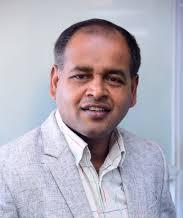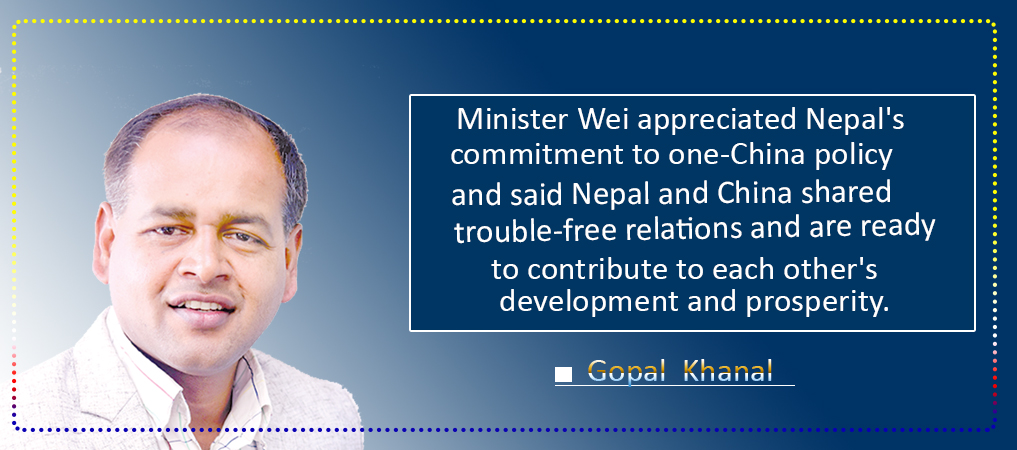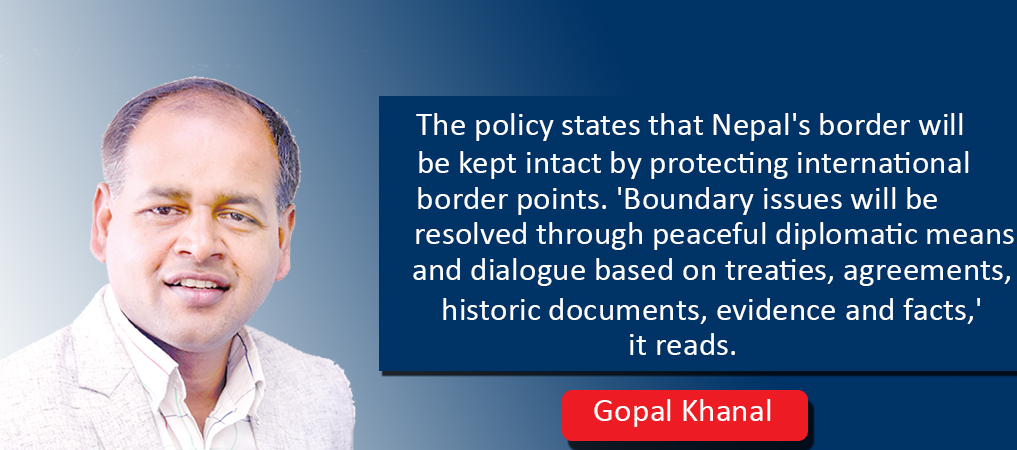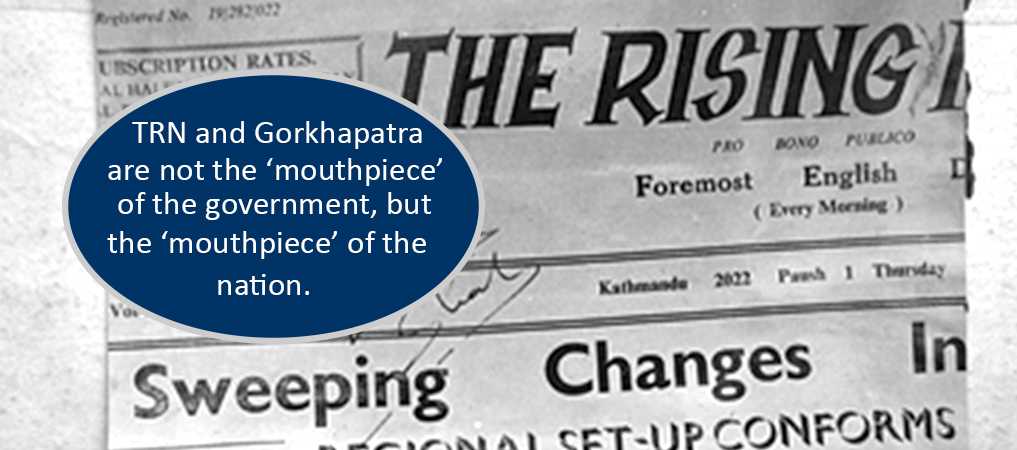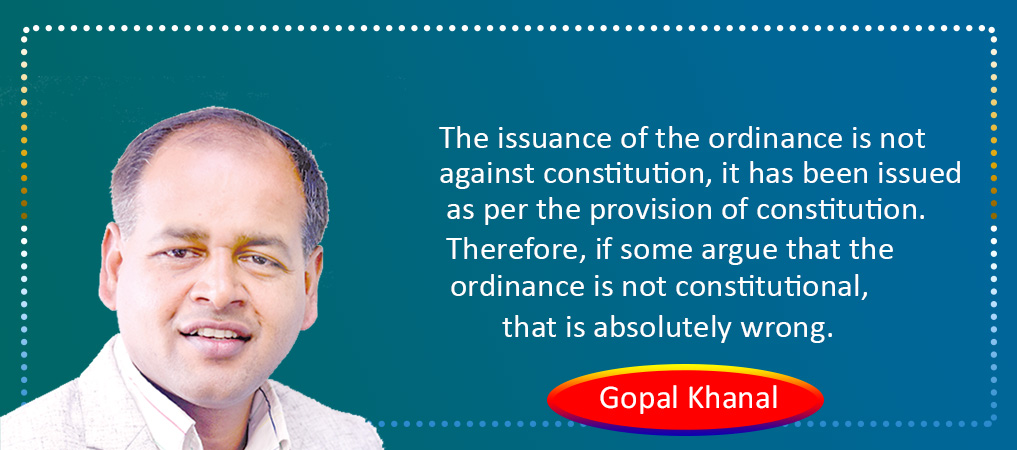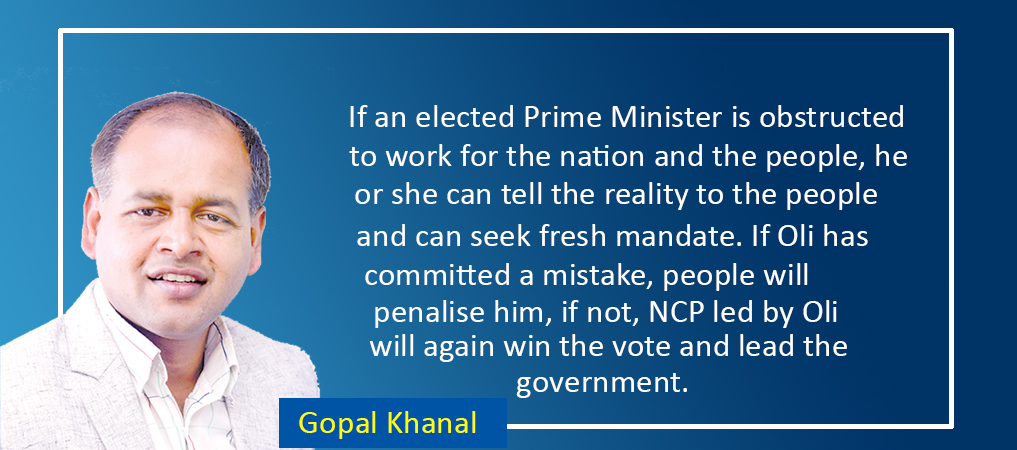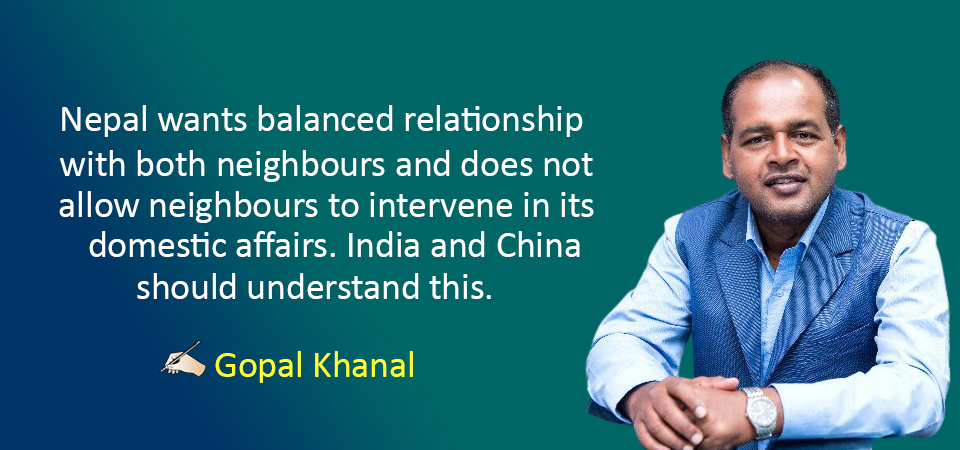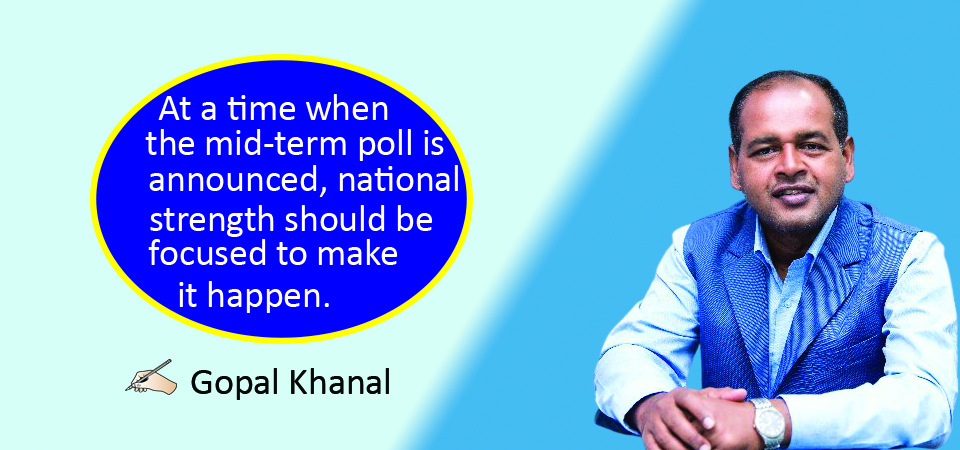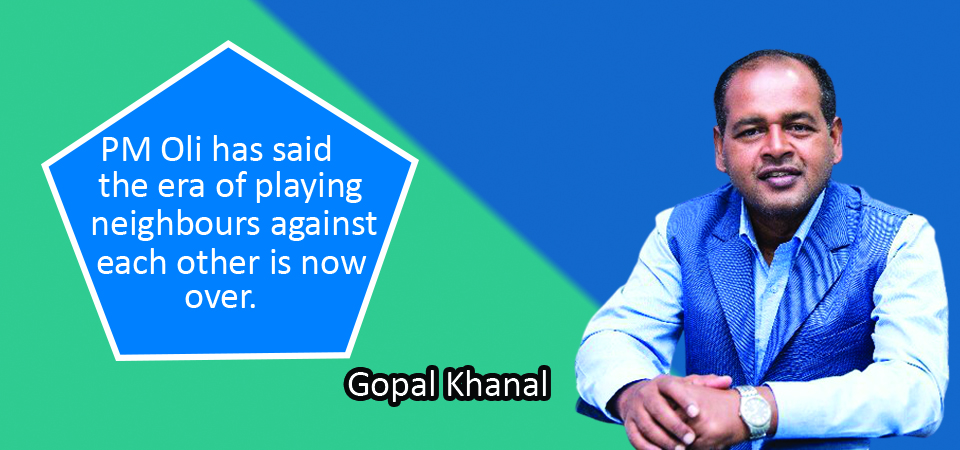Is Anti-Oli Protest Constitutional?
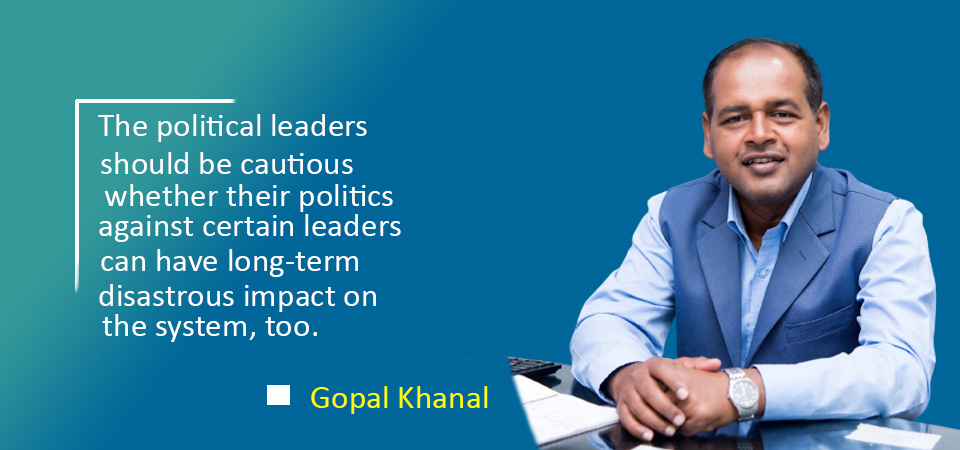
Gopal Khanal
The Supreme Court (SC) on 22 June invalidated two consequent expansions of the cabinet by Prime Minister KP Sharma Oli after the dissolution of the House of Representatives (HoR) on 21 May. With this, 20 ministers were relieved of their posts. The SC has cited Article 77 (3) in its ruling to quash the appointments of the ministers. It states that if the Office of the Prime Minister falls vacant after the Prime Minister fails to win a vote of confidence or resigns, the same Council of Ministers shall continue to act until another Council of Ministers is constituted. The petitioners had argued that the government has already turned into a caretaker status following the announcement of the elections, and hence the constitution does not allow the PM to appoint new ministers.
Now, there are only five ministers left in Oli’s cabinet. The court’s ruling has stunned Prime Minister Oli. He has taken it as a part of the already launched larger design of isolating him from state apparatus. But, more crucial to Prime Minister is the HoR dissolution case which the SC started hearing on Wednesday (June 23). How can the PM handle the government with just four ministers in such a critical time of fighting against the COVID-19 pandemic and utterly divided domestic politics? Therefore, the ruling sounds more a judicial activism than the impartial delivery of justice. But it doesn't mean that judicial autonomy should not be exercised.
Court of politics
If political parties do not resolve their inter-party and intra-party feuds and if they seek their kind of justice (not fair justice) from the SC, such interim orders and verdicts frequently come. The latest ruling should be seen against the backdrop. If there is any controversy or ambiguity in Articles of the constitution, the SC is the ultimate authority to interpret and clarify them. But, now it seems that each and every decision of the government is the subject to judicial review.
The SC’s verdicts and rulings are mandatory. Those defying them face contempt of court charges. But, worrisome matter here is not whether the concerned persons abide by the SC order, but whether the court really gives justice to the people or not. There has been tendency to guess the kind of interim orders and verdicts by just knowing the names of the judges picked for the bench to hear the given petitions. Look at the case of the HoR dissolution. Many have anticipated the SC will reinstate the HoR after seeing the faces of the Constitutional Bench led by Chief Justice. For the judiciary, which had been so far proved its independence and impartiality despite serious criticism in some cases, its latest activism doesn't sound good.
When the SC annulled the expansion of the cabinet, the opposition alliance comprising former prime ministers welcomed it. The spokesperson of the ruling CPN-UML Pradeep Kumar Gyawali expressed his displeasure with the ruling, saying it was against the parliamentary practice. But, he said his party would abide by the court's decision. Even Prime Minister Oli held meeting with the ministers, who lost their position due to the court ruling, and assured them that he was with them. The Prime Minister might have indicated the verdict of the SC on the issue of House dissolution. There have been constant meetings of opposition alliance, which aims to overthrow Prime Minister Oli not that the later failed to lead, but the former failed to exercise their power.
Paradox
Prime Minister Oli is the chairman of the ruling UML and its Parliamentary Party leader. Therefore, he is still the most powerful leader of the country. It is true that Oli has lost majority in parliament and he has declared election arguing that the fresh mandate of the people will give a way out to the current deadlock and help avoid the possible anomalies and aberrations of the parliamentary politics. But, the leaders except Oli should also understand that they would also become Prime Ministers and ministers. What would be their reaction if they face the same problem as PM Oli is facing now? When the SC reinstated the HoR after PM Oli dissolved it for the first time, it was considered as victory of the anti-Oli alliance. It claimed that the House restoration marked the downfall of Oli. But it was not so.
When the SC annulled the unification of UML and CPN-Maoist Centre, asking them to return to their pre-unification status, the anti-Oli alliance stood against the verdict. Nepali Congress president Sher Bahadur Deuba and Maoist Centre chair Pushpa Kamal Dahal Prachanda said there was a 'setting' between the Prime Minister and the Chief Justice, but as the recent rulings were against the PM, they kept mum about their alleged version.
There has been propensity among the people, particularly the political leaders, of appreciating or criticising the court ruling based on their preference and interests. If the SC gives verdict in their favour, they say justice has finally prevailed. But if the SC's verdict goes against them, they say they were denied justice owing to the 'setting' and the ‘big package’ awarded to the judges. The main question here is not that Prime Minister Oli should stay in government or go but the dependency of the political parties and leaders on the court to decide their internal problems.
In parliamentary democracy, political parties are the major actors to live up to that democratic ideals but here we have been advocating that the parties are less important than the Member of Parliament, who has won electoral constituency as the candidate of the party. If the floor crossing is taken easily and considered as parliamentary practice, it will create anarchism in the system. Parties are not just parties, they are the formal organisations assigned to lead the society and the nation through discipline, principles and policies. In Nepal, problems are not in the party's policy and principles, problems are in the leadership, which always runs after power.
Therefore, the political leaders should be cautious whether their politics against certain leaders can have long-term disastrous impact on the system, too.
(Khanal is consulting editor at Gorkhapatra Corporation. khanalbro@gmail.com)
Recent News

Do not make expressions casting dout on election: EC
14 Apr, 2022
CM Bhatta says may New Year 2079 BS inspire positive thinking
14 Apr, 2022
Three new cases, 44 recoveries in 24 hours
14 Apr, 2022
689 climbers of 84 teams so far acquire permits for climbing various peaks this spring season
14 Apr, 2022
How the rising cost of living crisis is impacting Nepal
14 Apr, 2022
US military confirms an interstellar meteor collided with Earth
14 Apr, 2022
Valneva Covid vaccine approved for use in UK
14 Apr, 2022
Chair Prachanda highlights need of unity among Maoist, Communist forces
14 Apr, 2022
Ranbir Kapoor and Alia Bhatt: Bollywood toasts star couple on wedding
14 Apr, 2022
President Bhandari confers decorations (Photo Feature)
14 Apr, 2022



